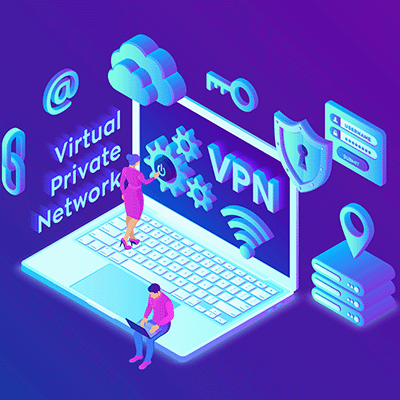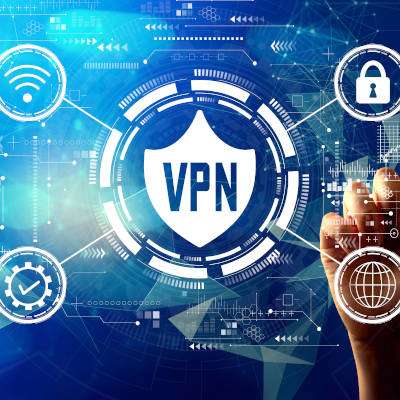With the world dramatically changing in the past two years, work strategies have changed substantially. Now companies that once were anti-remote work are embracing the strategy. This means that the way they need to manage their IT has to change with the times. Alas, threats also evolve. Hackers and scammers are now doing more to target virtual private networks.
Macro Systems Blog
Small business owners are always searching for that “special something” that will provide added value to their offering. In 2020, with COVID-19 causing all kinds of chaos, it has been hard for businesses to commit to any new investments. To keep revenue coming in, a lot of businesses have been forced into letting their staff to work remotely. To make this work, many have rolled out VPN for their business, but like seemingly everything else, there are very serious risks about relying too heavily on your VPN. Listed below are a look at some of these risks.
Numerous computer users worry about their privacy--and judging by the discussions surrounding the FCC and Net Neutrality, they should be. Now that users are responsible for the privacy of their online activity, they are finding new ways to make sure that corporations are not taking advantage of their Internet activity--mostly through the use of a Virtual Private Network, or VPN.
 Accessibility and mobility are important parts of a business’s data infrastructure. To this end, some businesses take advantage of a Virtual Private Network (VPN), which has the power to extend a personal network over a private network like the Internet. However, with new services like cloud computing gaining traction, is it time for businesses to switch up their VPN policies to stay relevant in their industry?
Accessibility and mobility are important parts of a business’s data infrastructure. To this end, some businesses take advantage of a Virtual Private Network (VPN), which has the power to extend a personal network over a private network like the Internet. However, with new services like cloud computing gaining traction, is it time for businesses to switch up their VPN policies to stay relevant in their industry?
 Whether you're on the move or at the workplace, your WiFi connection isn't the most secure method of browsing the Internet. Hacking techniques are growing more sophisticated, and you never know who could be observing your connection and Internet activity. Thankfully, there are ways to remediate this issue, like using a Virtual Private Network (VPN).
Whether you're on the move or at the workplace, your WiFi connection isn't the most secure method of browsing the Internet. Hacking techniques are growing more sophisticated, and you never know who could be observing your connection and Internet activity. Thankfully, there are ways to remediate this issue, like using a Virtual Private Network (VPN).
 One of the most controversial parts of having remote workers is how they access your organization’s network while out of the office. You don’t want them to risk compromising your business’s data, but you also need them to have access to mission-critical applications and information while on the go. Therefore, you need a solution that helps your employees access this information securely without incident, like a virtual private network (VPN).
One of the most controversial parts of having remote workers is how they access your organization’s network while out of the office. You don’t want them to risk compromising your business’s data, but you also need them to have access to mission-critical applications and information while on the go. Therefore, you need a solution that helps your employees access this information securely without incident, like a virtual private network (VPN).
 Many businesses see the value in allowing their team to work remotely, which sounds great on paper. Workers don’t have to be at the office to get work done, so long as they have an Internet connection. Most important of all, though, is how much money a business can save by allowing its workers to work remotely. Thus, the primary objective should be to make it as easy as possible for remote workers to perform their jobs.
Many businesses see the value in allowing their team to work remotely, which sounds great on paper. Workers don’t have to be at the office to get work done, so long as they have an Internet connection. Most important of all, though, is how much money a business can save by allowing its workers to work remotely. Thus, the primary objective should be to make it as easy as possible for remote workers to perform their jobs.
 Most of your business’ technology is a direct result of your need to quickly and securely disseminate information. While there are solutions meant to improve efficiency peppered in there, the vast majority of IT solutions are designed to create, share, or protect information. On today’s Internet there are many threats looking to corrupt or intercept that information. One way your organization can share information more securely is through the use of a Virtual Private Network (VPN).
Most of your business’ technology is a direct result of your need to quickly and securely disseminate information. While there are solutions meant to improve efficiency peppered in there, the vast majority of IT solutions are designed to create, share, or protect information. On today’s Internet there are many threats looking to corrupt or intercept that information. One way your organization can share information more securely is through the use of a Virtual Private Network (VPN).






